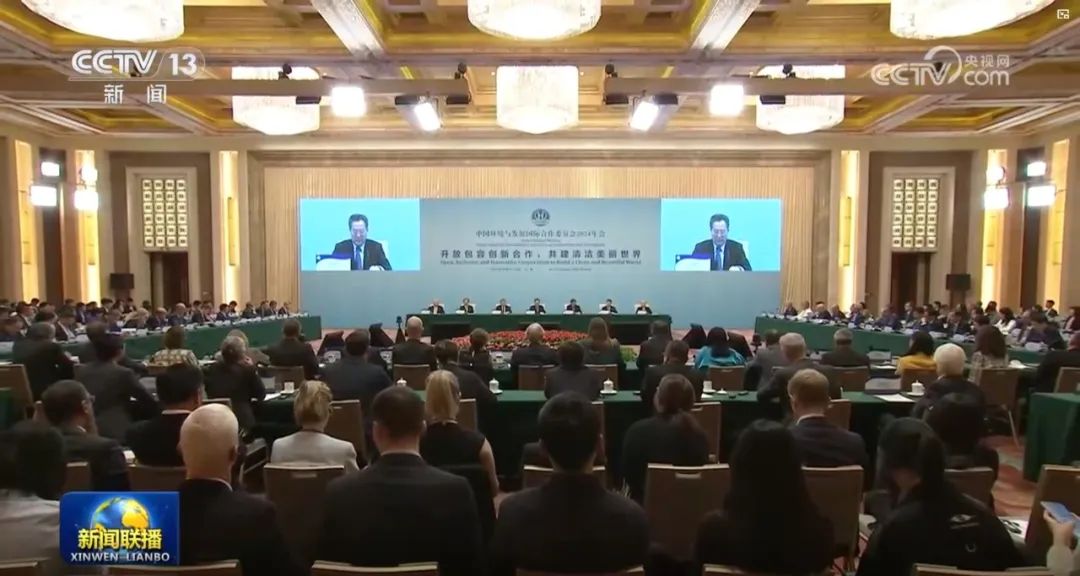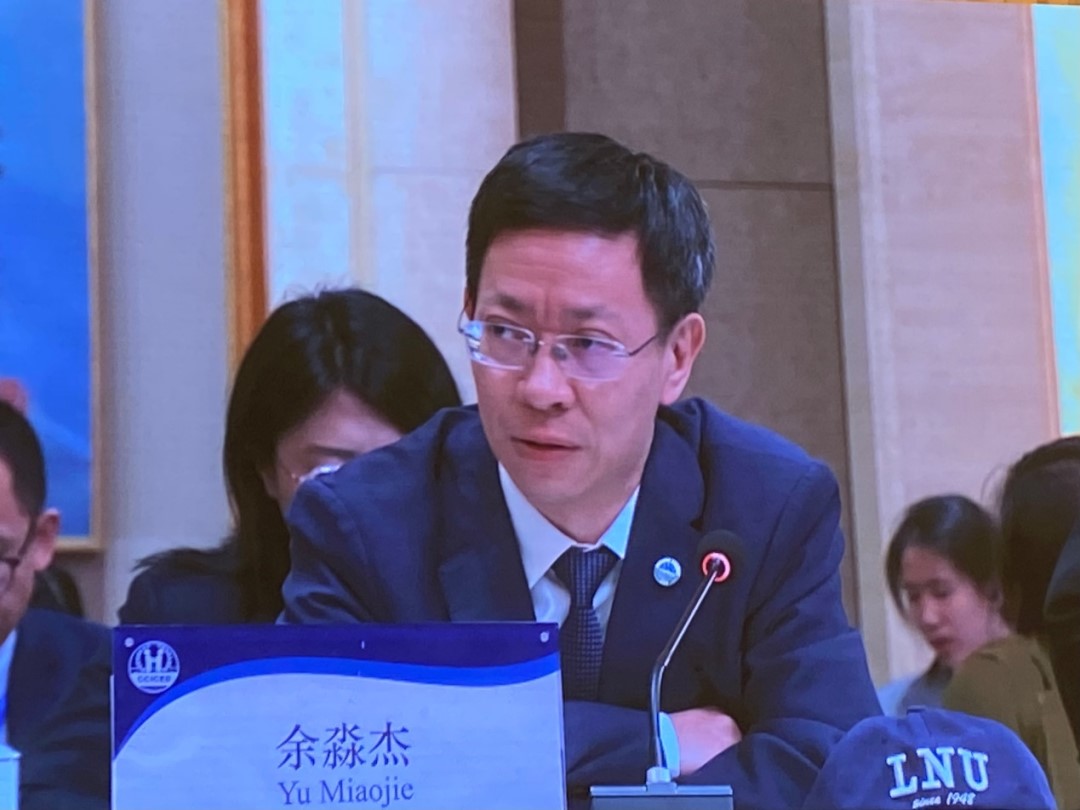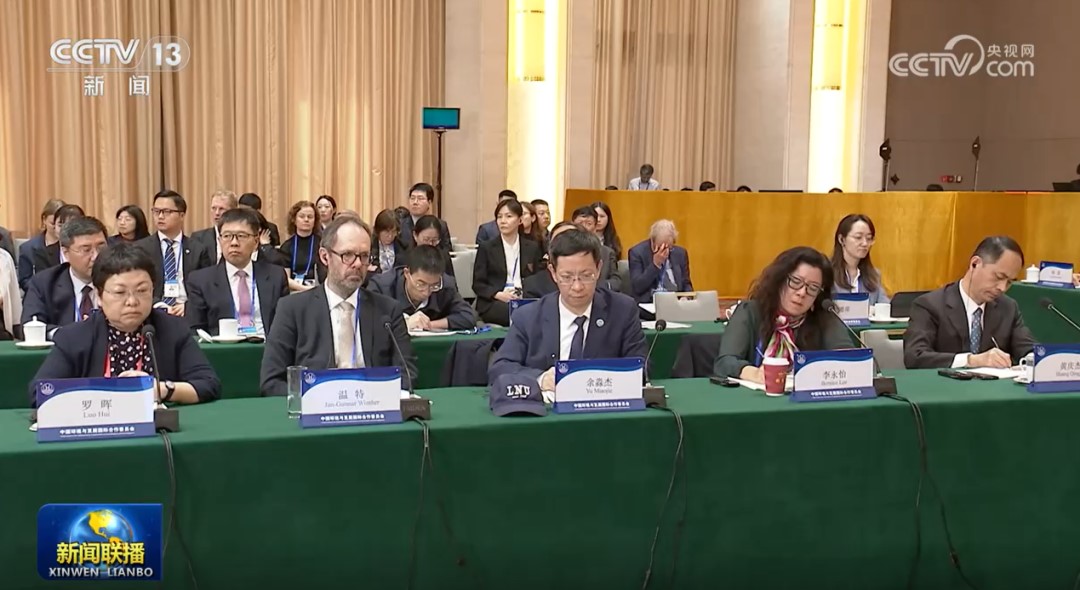From October 10 to 12, the Annual Meeting of the China Council for International Cooperation on Environment and Development (CCICED), themed ‘Openness, Inclusiveness, Innovation, Cooperation, Building a Clean and Beautiful World Together’, was held in Beijing. On the morning of October 12, Professor Yu Miaojie, a Deputy to the National People’s Congress, a Fellow of the International Economic Association, and the Deputy Secretary of the CPC Committee and President of Liaoning University, who served as the Chinese team leader for the policy research on ‘Sustainable Trade and Sustainable Supply Chains’, was invited to speak at the policy research dialogue session of the CCICED annual meeting. Also attending the meeting were Professor Yin Ruyu, Deputy Director of the Office of International Affairs at Liaoning University and coordinator of the Chinese team for the policy research project, and Dr. Liu Renliang from the Li Anmin Institute of Economic Research at Liaoning University, who served as an expert for the Chinese team in the policy research project.

Yu Miaojie stated that the research team primarily focused on China’s trade in low-carbon technology products, summarizing the following three important empirical characteristics of low-carbon technology product trade through data analysis: Firstly, China’s share of low-carbon technology products in the global export market has achieved significant growth over the past three decades, rising from just 1.1% in 1992 to 18% in 2022. This growth has propelled China into becoming one of the world’s leading suppliers of green and low-carbon technologies and products, leading the global transformation towards green and low-carbon development. Secondly, China has transitioned from being a net importer of low-carbon technology products to becoming a net exporter of such products. Thirdly, China’s outstanding performance in the trade of low-carbon technology products is not only driven by the new energy vehicle sector but also widely involves key technologies in pollution control, power generation, and energy storage.

Yu Miaojie noted that the research team used the gravity model in international trade to empirically test the determinants of trade partners’ engagement with China in low-carbon technology product trade. Their findings were as follows: Firstly, the economic size of trade partners, measured by their gross domestic product (GDP), plays a significant role. Countries with larger economies tend to import more low-carbon technology products from China. Secondly, the affluence level of trade partners, measured by their per capita GDP, has an inverse impact on the volume of low-carbon technology product imports from China. This suggests that developing countries are more inclined to import low-carbon technology products from China. Thirdly, the exchange rate stability of trade partners effectively promotes the import of low-carbon technology products from China. Countries with more stable exchange rates tend to import more such products from China.
Yu Miaojie emphasized that the research team further assessed the environmental impact of importing low-carbon technology products from China on trade partners, i.e., the importing countries. The study results indicate that low-carbon technology products from China can effectively reduce the carbon dioxide (CO2) emissions of importing countries. This environmental effect is statistically significant across different measures of CO2 emissions and has substantial economic significance. There are three important economic mechanisms for these environmental benefits:
Firstly, the human capital and education level of importing countries, including sustainability education, can significantly amplify the emission reduction effects of imported low-carbon technology products.
Secondly, the political stability of importing countries can effectively enhance the environmental effects of low-carbon technology products.
Thirdly, the scale of foreign direct investment inflows into importing countries can also expand this effect.
Finally, Yu Miaojie stated that the research team, based on the findings of their policy research, proposed comprehensive policy recommendations for advancing China’s development in sustainable trade and sustainable supply chains. He particularly highlighted the following recommendations: Firstly, increase subsidies for renewable energy research and development to promote innovation and lead global energy security. Secondly, encourage foreign direct investment in the renewable energy and low-carbon technology sectors to foster global cooperation. Thirdly, stabilize bilateral exchange rates and export prices to promote stable trade and investment relations with partners.

On the afternoon of October 12, Yu Miaojie and his delegation attended the closing ceremony of the 2024 Annual Meeting of the China Council for International Cooperation on Environment and Development (CCICED).
Founded in 1992 with the approval of the Chinese government, CCICED is an international high-level policy advisory organization comprising senior officials and experts from both China and abroad working in the fields of environment and development. Over the years, CCICED has become the longest-standing, highest-level, most productive, and most influential high-level dialogue and cooperation mechanism between China and the international community in the field of environment and development. The council has been actively researching significant issues in China and the global environment as well as development, providing policy recommendations that have played a significant role in promoting beautiful China construction and international sustainable development.
The annual meeting was organized into three plenary sessions and seven thematic forums, with approximately 400 participants, including CCICED’s Chinese and foreign council members, experts, and partners.
